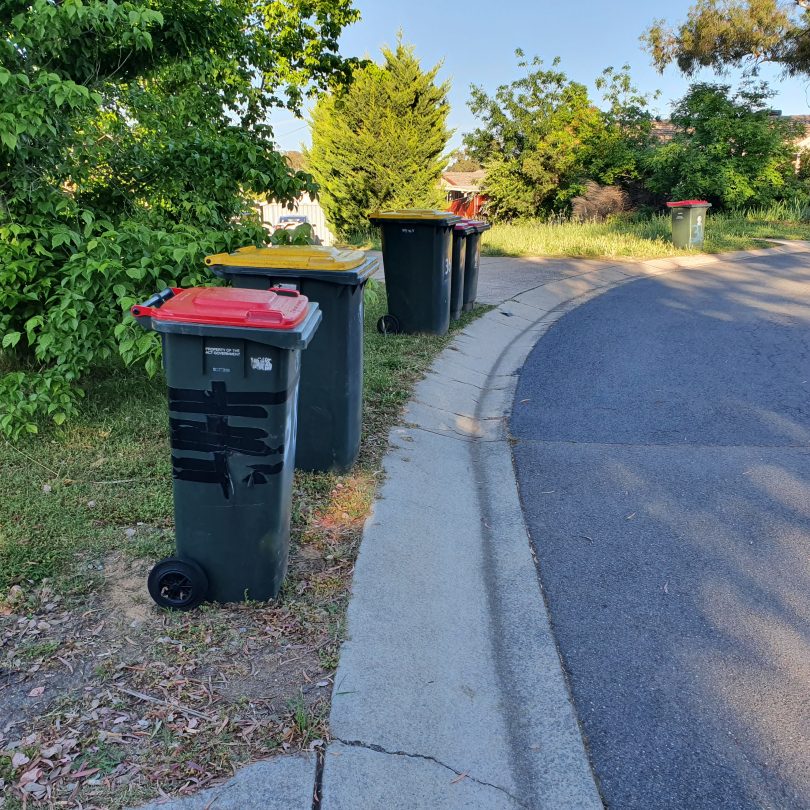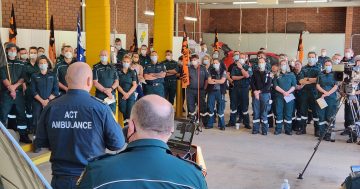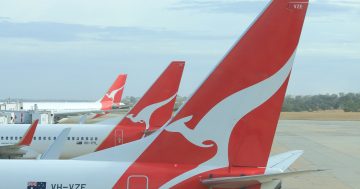
Future garbage bin collection strikes are on the horizon for Canberrans. Photo: Region Media.
Negotiations over pay and conditions which could avert strike action are continuing between garbage collection company Suez and the drivers’ union, the Transport Workers Union (TWU). Both parties met yesterday with the Fair Work Commission (FWC) to try to find a solution to the six-month impasse.
The union is set to meet with its members tomorrow (25 November) when discussions will continue.
TWU ACT Secretary Klaus Pinkas said the union gave Suez “some things to think about” at their meeting on Monday (23 November).
Suez representatives also presented further options to the TWU in line with the FWC’s 18 November request that both parties reconsider their bargaining positions.
Both parties will meet with the commission again on 2 December.
Four days’ notice must be given before any industrial action, so the earliest day drivers could strike would be early next week. If drivers walk out again, it will be the fourth time in five weeks that some Canberra residents would miss out having their bins collected.
Mr Pinkas said the drivers had the support of the Canberra community.
“Garbos across the ACT have reported that the vast amount of feedback from local residents has been supportive. Drivers who work for Suez, picking up the bins in the ACT, are locals too. They work where they live,” Mr Pinkas said.
“In response to claims that garbos are being greedy, the TWU believes that it is a good idea that critical workers are well paid for the job they do. It is generally acknowledged that low wage growth is a problem in both the national and ACT economies.”
However, Suez’s NSW General Manager of Collections and Logistics Paul Haslam says the company has been negotiating in good faith, going back to drivers with five different offers over the past six months.
Drivers received a 3.4 per cent pay rise this year, and Suez is offering a pay rise of 2 per cent in 2021, 3 per cent in 2022 and 3 per cent in 2023. The union wants 4 per cent each year.
The union is also negotiating for the restoration of a paid rest break after two hours of overtime and the better efficiency in managing matters taken to the human resources department.
Mr Haslam says that of the 2,500 employees the company has in Australia, some staff have not had an increase this year, while those on hourly rates have seen increases between 1 and 3 per cent.
















